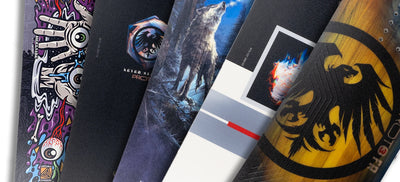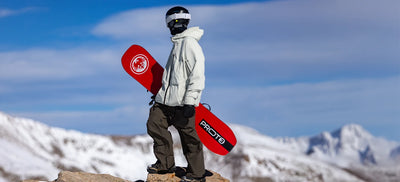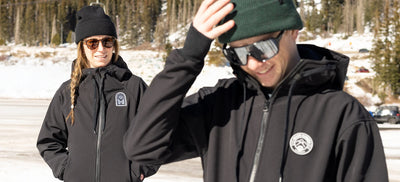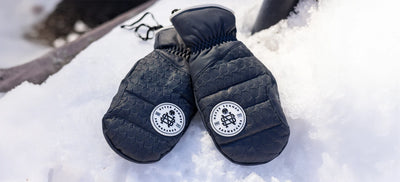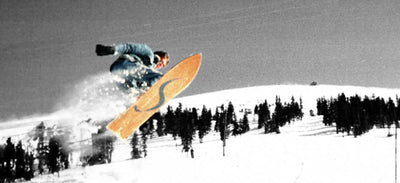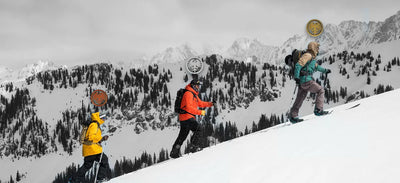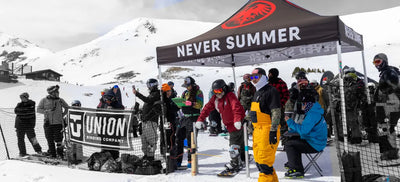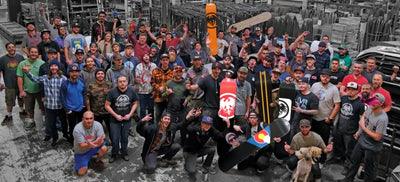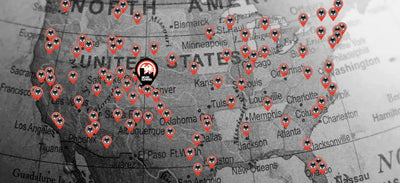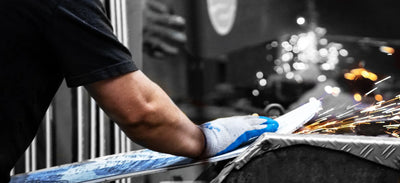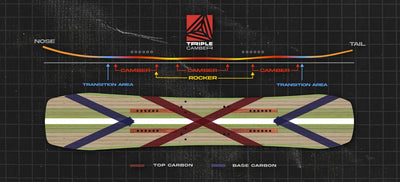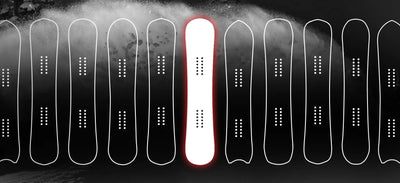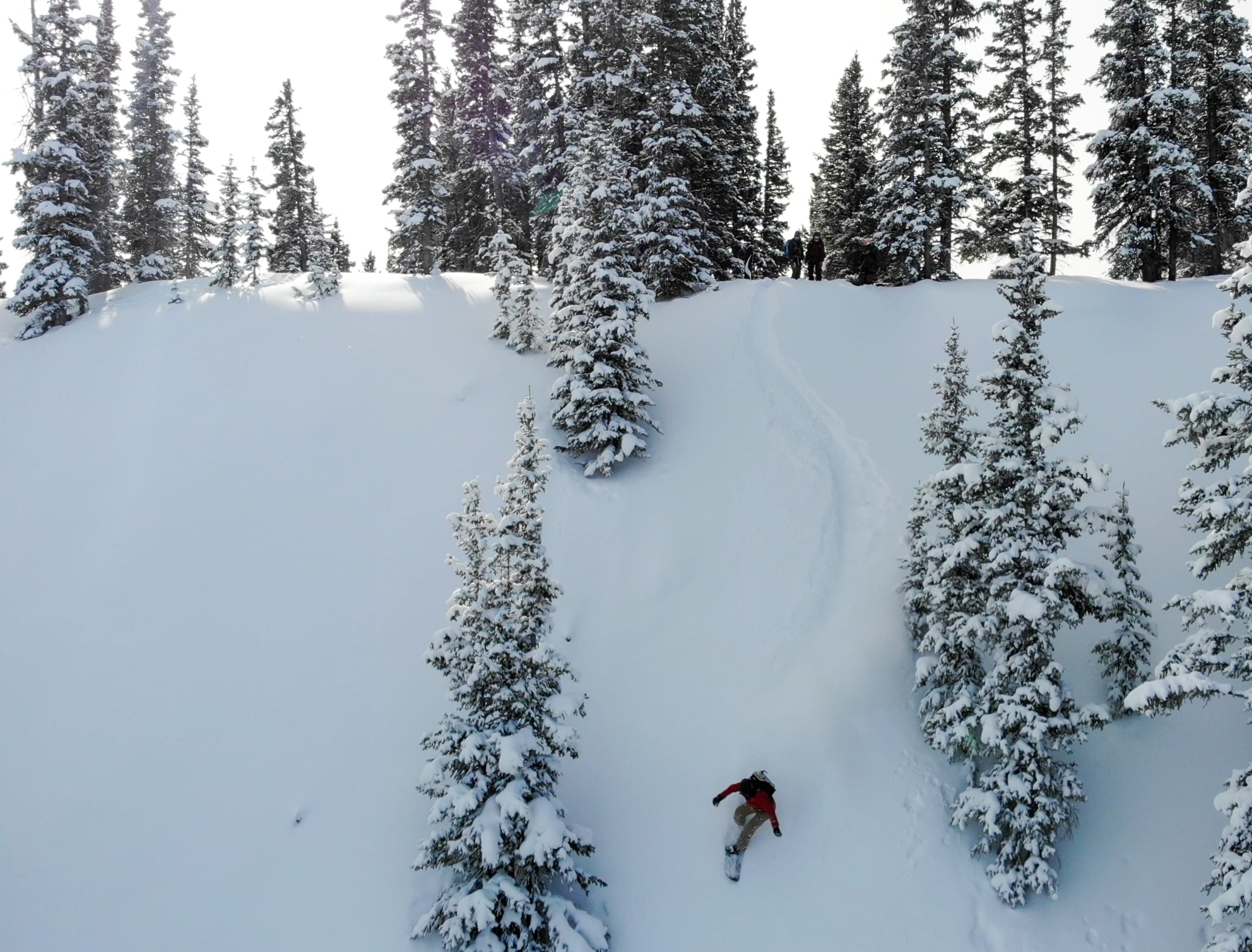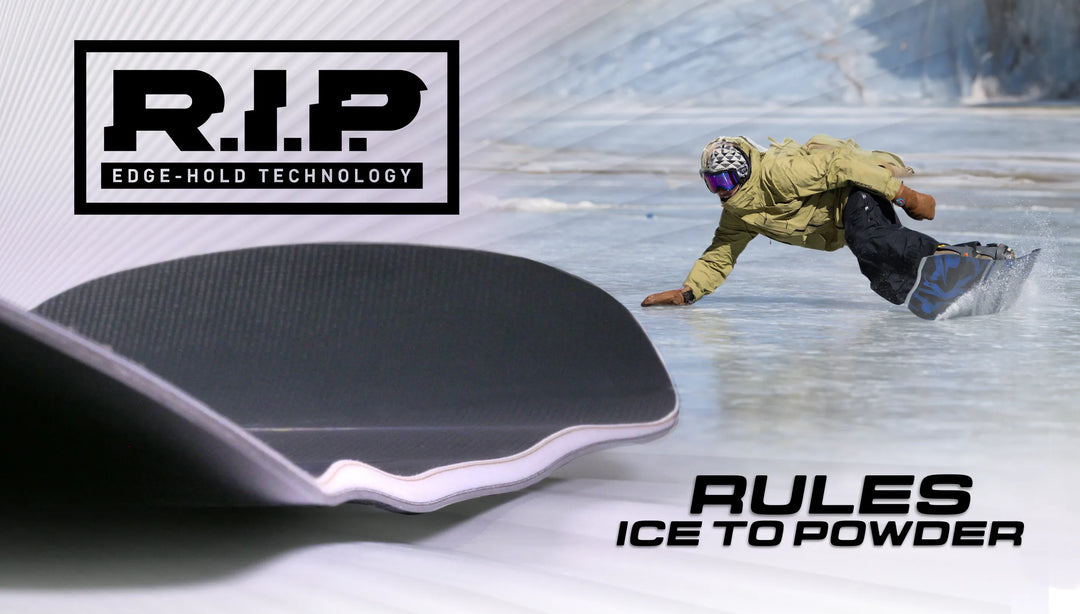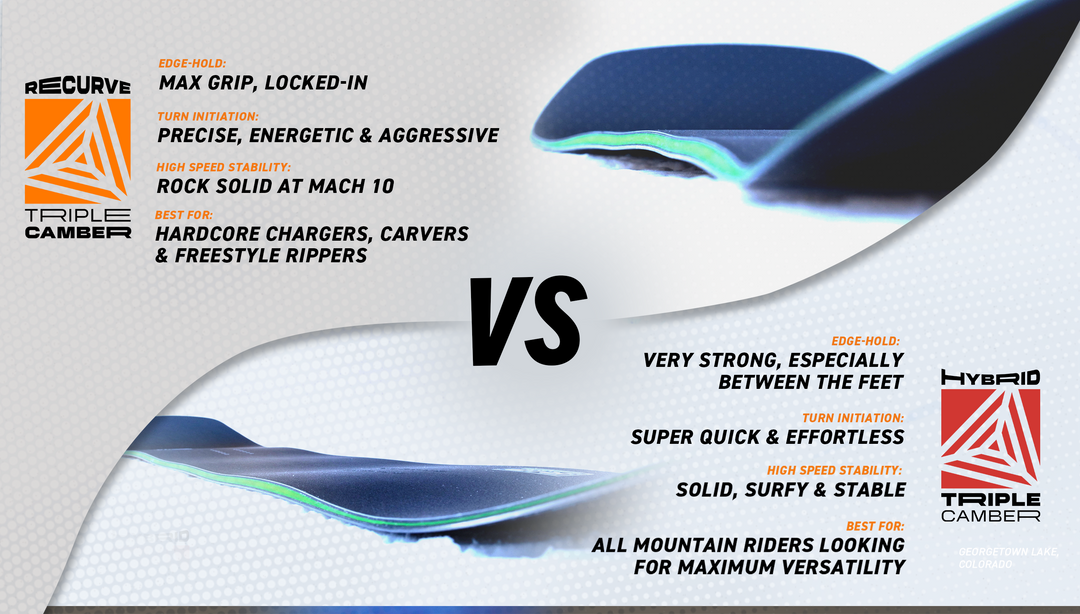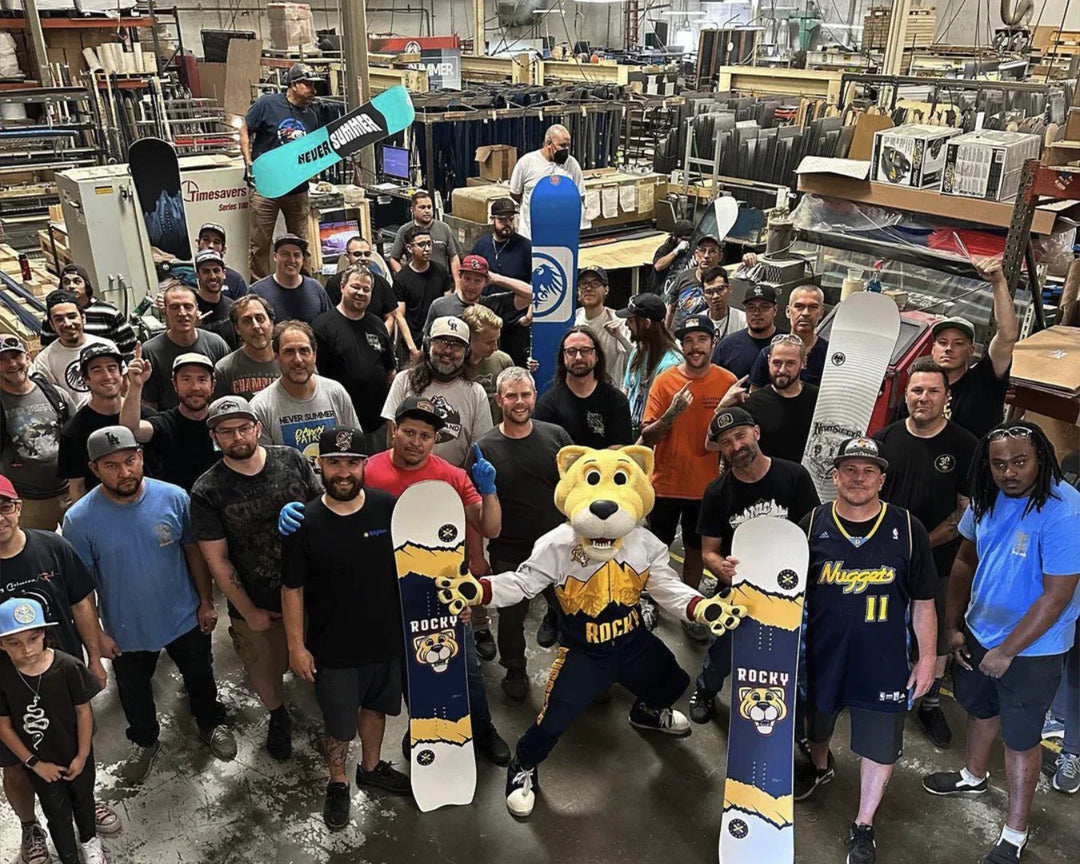You know you want to be on the mountain, but the question is – Do you want to be a skier or a snowboarder?
They both come with their benefits and as someone new to the slopes, those benefits aren’t always that obvious. We’re going to review the differences between skiing and snowboarding so you can nail down which option is best for you.
Skiing vs. Snowboarding Pros and Cons
Skiing and snowboarding are two very similar yet very different sports. To help you get an idea of what we’re talking about, we’re going to outline the pros and cons of each. Remember that it’s going to be you up on that mountain, so whichever pros and cons you feel the most comfortable with is going to be the best option for you.
Skiing
Skis come in pairs and attach separately to each of your feet. Using the skis, you’re able to glide down snow separating and bringing your feet together as necessary.
The Pros of Skiing Are:
1. You Can Learn To Ski Faster
If you’re looking to take a few runs down the bunny hill and spend the rest of your day on the mountain, then skiing might be the best option for you. Generally, skiing is easier to pick up for those new to the mountain *but* it can be harder to master down the line depending on how much you want to level up down the line. You can pizza wedge skis to keep you from going too fast.
2. Ski Poles Make It Easier To Move
When you ski, you’re going to have a pole in each of your hands to help you down the mountain. You can use these on the catwalks that connect two trails when you need to go a bit slower, or push to gain speed and have more control. There is a downside to having poles, though, because they’re easy to lose if you crash or could end up hurting you.
3. It’s Easier To Get Off The Chairlift
If the chairlift is the most intimidating part of mountain sports for you, skiing will give you the easiest experience. It’s easier to move around on skis and get yourself on to the chairlift, and it’s also easier to get off with skis. With that said, if this is your only reason for wanting to choose skis over snowboarding—this is only a short term advantage. You’ll get used to getting off the lift with a snowboard after a few runs, so don’t let this be the only reason you choose skiing.
The Cons of Skiing Are:
1. Boots Are Uncomfortable and Hard To Walk In
One of the downfalls of skiing is that your boots will be more difficult to get around in when your skis aren’t on. This will only be temporary, but if you have to make a run to the bathroom or are spending time inside the lodge, you’ll notice that the snowboarders are getting around a lot easier than you are. This just comes down to the difference in how you attach to a ski vs. a snowboard, so unfortunately, it is what it is.
2. Controlling 2 Skis Is Challenging (And Hard On Your Knees)
When you go down the mountain, you’ll have to keep control of both of your legs and make sure they’re working together to get you to where you want to go. If your legs start to separate or stay too close together, you can get hurt. Skiing can also be harder on your knees than snowboarding.
3. Skiing Equipment Is More Expensive
Generally, skiing equipment is more expensive than snowboarding equipment. This just comes down to the amount of equipment you need for each sport. With snowboarding, you just need a board. With skiing, you need two poles and two skis, which runs the price up a bit higher.
With a look at the pros and cons of skiing, are you starting to already make your mind up about whether you want to ski or snowboard this season? Before you make your final decision, let’s run through the same pro and con list but for snowboarding.
Snowboarding
A snowboard attaches to both of your feet and you’ll glide down the mountain with your feet attached to the board at all times. Unlike skiing, your feet stay in one locked position.
The Pros of Snowboarding Are:
1. Boots Are Comfortable
We covered that ski boots aren’t that comfortable, so here’s where we make the comparison. Snowboard boots are more comfortable than ski boots and will be easier to walk around in when you don’t have your board on. Snowboard boots feel like you’re wearing a casual snow boot vs. a hard shell ski boot not meant for walking. You’ll also find they also have great support.
2. It’s More Natural to Ride in The Park
The idea of a park on a ski resort comes from skateboarding. Being on one board is more similar to skateboarding than snowboarding. Sliding on rails and boxes on skis make it look like you’re on rollerblades where snowboarding has the feel and look of skateboarding.
3. You Have A Transferable Skill
One of our favorite parts of snowboarding is that it makes you better at other sports too. Once you’ve nailed down boarding, you’re going to find it easy to surf or skateboard. The skill of balancing yourself on a board and gliding forward will stay with you, regardless of the board you swap it out for. Driving through a turn in powder or slush is a very similar feeling to the turn of a surfboard. And slashing banks is similar to snapping the top of a wave.
4. Snowboard Gear Is More Affordable
It’s usually cheaper to buy snowboard gear than it is to buy ski gear. Like we talked about in the last section, you need less equipment with snowboards. With that said, you want to go with the option that makes the most sense for you. You don’t want to snowboard because it’s cheaper but feel way less comfortable on the slopes and not enjoy your time. The mountain doesn’t want that for you—go with the option that makes you feel the most confident while you’re shredding.
5. It’s Easier To Move Through Powder and Wet, Slushy Snow
On a snowboard, you can move through powder more easily than on skis. You’ll be able to maneuver through the trees easily with a board and make those surfy turns that just aren’t available with skis. Snowboarding gives you a better float because of the wider surface area, which can make for a more seamless experience down the mountain.
The Cons of Snowboarding Are:
1. Moving Sideways Isn’t As Intuitive
When you ski, you’re moving your legs from the left to the right while keeping your body towards the bottom of the slope. Snowboarding is different. You’ll have your body moving sideways, which can feel less intuitive and make it more difficult. You’ll get used to this after some time, but this can be what hangs up many new boarders.
2. It’s Easier To Fall
Since snowboards only have one edge (the edge that’s going down the mountain), it’s a lot easier to fall. Without being able to compensate with your other leg, if your edge catches on something on the mountain, you’ll most likely take a tumble. With skis, if an edge of your ski catches on something you can compensate for it with your other ski.
3. You Have To Keep Your Speed in Flat Areas
As a new snowboarder, you want to keep control over how fast you’re going at first. The problem with flat areas is that if you lose your speed, it will be really hard to get enough to keep going down the mountain. On skis, you can use your poles to help you move through a flat area. Without poles, you’ll have to maintain speed to get past those flat zones.
As we mentioned before, learning to ski comes a lot easier for most people, but learning how to master the sport is a long journey. While the learning curve might be slightly steeper with snowboarding, it tends to be easier to master once it clicks.
Why Snowboarding is Better than Skiing
We’re big fans of boarding. We’ve tried them both and at the end of the day, cruising down the slopes on a board always gives us that euphoric high we were looking for when we got on the chairlift.
We like snowboarding because once it clicks, you’re going to be able to level up your skill level really fast. It’ll be a much faster level up than skiing would be. As a boarder, you’re going to find that at times it’s a lot more convenient than skiing. And, if you want to take it to the park—doing it on a board is a hell of a lot easier.
If you’re thinking of boarding, we have 10 tips for snowboarders that will help you crush it on the slopes (even if it’s your first time).
What to Look for in a Beginner Snowboard
Buying your first board is incredibly exciting. If you don’t know what you’re doing, we can help you out. Here’s how to choose a snowboard that’s exactly what you need based on your size, skill level, and where you want to take it in the park. We’ve made our boards great beginner boards by:
Making Boards With ‘Rocker Camber Profiles’: Rocker Camber profiles make the board less catchy (so it’s harder for you to fall) and easier to float in powder while maintaining that edge hold. You’ll also be able to engage in easy turns and floats in powder.
Creating All-Mountain Boards: All-Mountain boards can be used across the entire mountain (from slopes to park). Our boards are engineered to be the most damp and stable at high speeds, so you can absorb chatter and undulations when you’re writing across imperfect snow.
Caring More Than Everyone Else: Never Summer is a family-owned business in Denver, Colorado. We don’t pretend to know about boards—we live in one of the best places to snowboard in the nation. We’re always perfecting our boards to make them that much better and just care way more about the quality and experience than those other companies.
Here are our top board recommendations for new snowboarders:
If you’re looking for an easy way to decide if you should take on skiing or snowboarding, here’s a way to classify which is best for you:
If you are someone who comes from skateboarding, longboarding, wakeboarding, wakesurfing, or surfing, you will absolutely love snowboarding.
If you have experience in cycling, rollerblading, or any forward-facing sport, skiing will be an easier sport to take up because of the natural body positioning.
Don’t stress too much about which option you pick—the other option will always be available. You can easily switch from skiing to snowboarding or vice versa if you decide you don’t like it. At the end of the day, both sports are here for the same reason, to be outside and have fun. No matter which you choose, you’re going to be flying down a frozen valley, breathing in some crisp air, and enjoying yourself.


